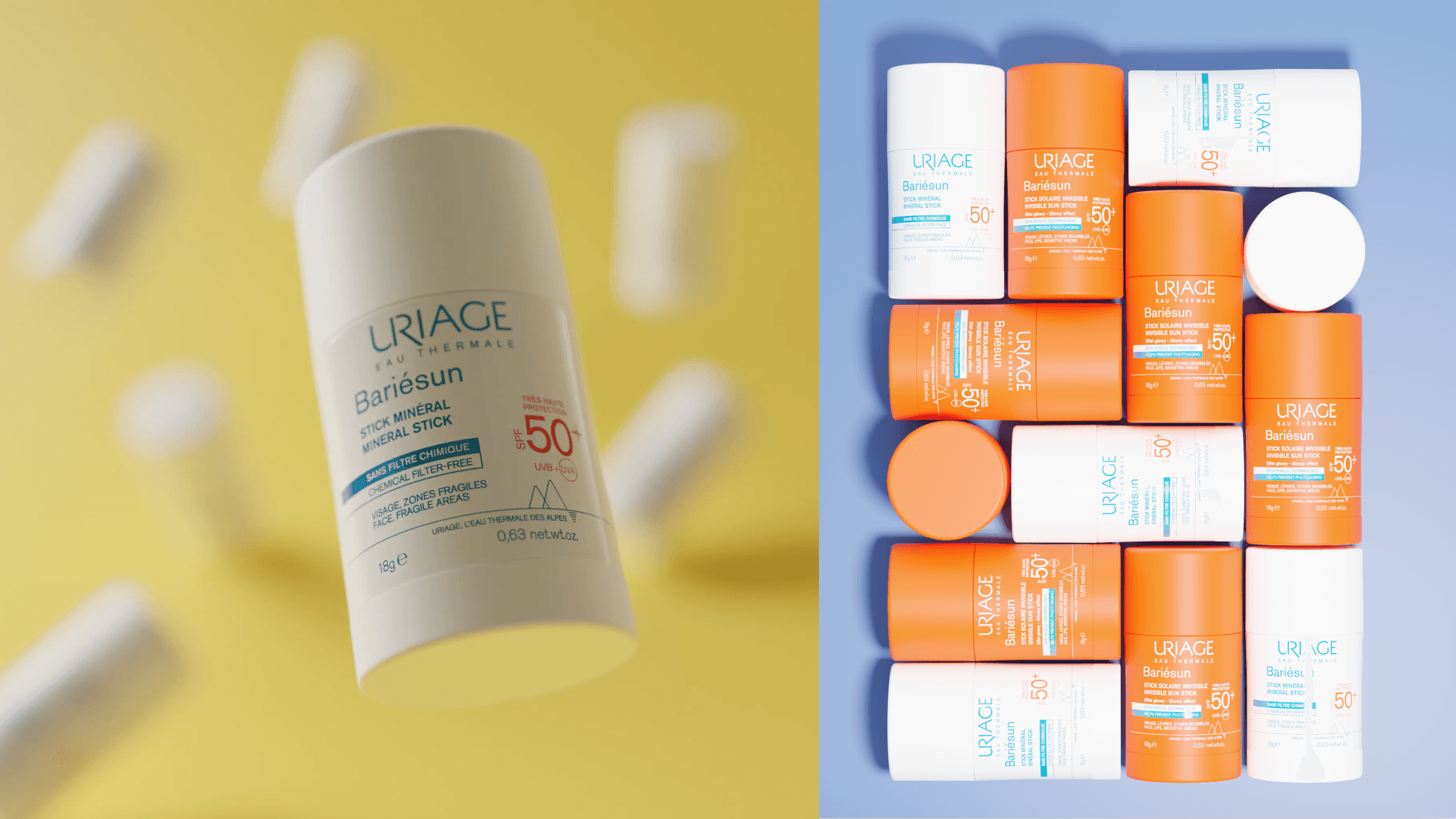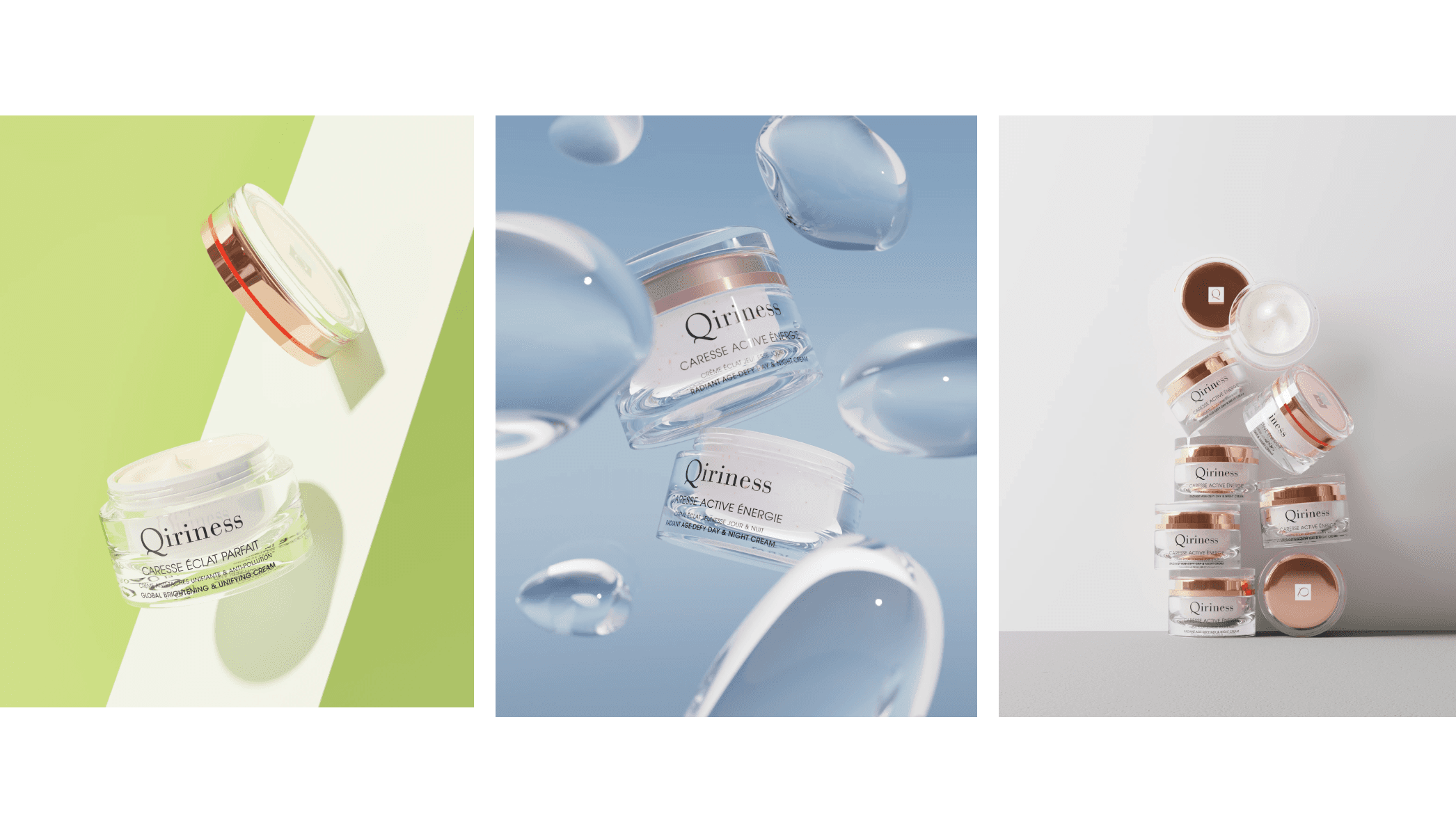L'importance des arrière-plans de photos de produits dans la photographie de produits | Omi.so

Written by
Emma Head
10 avr. 2025
Table of contents
L'importance des arrière-plans de photos de produits dans la photographie de produits | Omi.so
Les photos de produits peuvent faire ou défaire vos ventes. En fait, 90 % des acheteurs d'Etsy affirment que la qualité de l'image a une grande influence sur leurs décisions d'achat (source). Et l'un des plus grands facteurs d'une photo de produit réussie ? L'arrière-plan.
Le rôle d'un arrière-plan va au-delà de rendre une photo de produit jolie. Il met en valeur les bonnes caractéristiques, éloigne les distractions et en dit plus aux clients sur votre marque.
Utilisé judicieusement, un arrière-plan fort peut transformer un défileur occasionnel en un véritable client.
Pourquoi les arrière-plans sont essentiels pour la photographie de produit
Ce n'est pas parce qu'ils ne sont pas les vedettes du spectacle qu'on doit négliger les arrière-plans. Voici quelques façons dont ils élèvent votre jeu eCommerce :
1. Ils établissent l'ambiance et le contexte
Une montre intelligente élégante placée devant un arrière-plan futuriste teinté de violet crie innovation et sophistication. Ce n'est pas juste un choix esthétique. Cela vise à évoquer une ambiance, un style de vie, une identité.
Un arrière-plan peut aider ou nuire à votre marque. Alors créez la bonne ambiance avant de vous fixer sur un style.
2. Ils maintiennent la cohérence à travers les plateformes
Les acheteurs font confiance aux marques cohérentes. Et lorsque les acheteurs vous font confiance, ils sont plus susceptibles d'acheter chez vous. Un style d'arrière-plan standardisé renforce la reconnaissance de la marque et crée cette expérience visuelle cohérente — que ce soit dans votre vitrine en ligne, vos comptes de médias sociaux, ou vos pages produits.

Découvrez cette ambiance d'Halloween sur tous les plans ! En savoir plus sur le marketing saisonnier avec Omi.
Rendez votre contenu visuel cohérent sur toutes les plateformes
3. Ils mettent en avant les caractéristiques des produits
Vous voulez attirer l'attention sur quelque chose, comme une patch de doré scintillant sur votre lettrage ? Alors le bon arrière-plan peut le contraster (ou le compléter) d'une manière qui attire l'œil.
Faites ressortir votre article de l'écran et directement dans les paniers d'achat. Comment ? Avec le contraste, bien sûr. Ce truc astucieux pousse l'œil vers ce qui se distingue. Et comme le dit le proverbe : les yeux attirent les clics — une excellente nouvelle pour votre photographie de produit eCommerce.
Types d'arrière-plans pour produits
Des arrière-plans photographiques blancs au bois, au chrome ou contextuels — il existe des tonnes d'options d'arrière-plan pour vos prises de vue de photographie de produit. Voici quelques-unes des catégories d'arrière-plan les plus populaires dans le Studio Virtuel d'Omi :

Unis
Les arrière-plans unis sont propres, simples et polyvalents. Ils sont idéaux pour mettre en valeur ou lancer des produits lorsque vous voulez que tous les yeux soient rivés sur l'article. Et en choisissant la bonne couleur unie, vous pouvez renforcer l'impact de votre produit.
Par exemple, placez une bouteille de parfum transparente contre un mur doré pour une sensation premium. Ou montrez une paire de baskets blanches fraîches contre un fond noir pour un look avant lancement.
Alors que le blanc fonctionne très bien pour les vitrines eCommerce, vous pouvez passer à l'une de ces couleurs d'ambiance lorsque vous souhaitez créer une atmosphère spécifique. N'en faites juste pas trop — vous ne voulez pas que l'arrière-plan écrase le look.
Motifs ou dégradés
Les arrière-plans à motifs et dégradés font plus qu'ajouter de l'intérêt visuel — ils peuvent donner à votre produit un contexte et une résonance émotionnelle.
Prenez une bouteille de vermouth capturée contre des carreaux espagnols : ce décor vous donne des indices sur l'héritage du produit. Et pour certains, cela pourrait même déclencher des souvenirs de vacances ou de réunions familiales.
Lorsque vous essayez de capter un style, une personnalité ou une ambiance spécifique, les arrière-plans à motifs ou dégradés aident à compléter le produit sans le faire éclipsé.
Arrière-plans texturés
Les arrière-plans texturés ajoutent de la profondeur et rendent votre produit encore plus attrayant. Ajouter une couche sensorielle est la prochaine meilleure chose à placer le produit entre les mains de vos clients.
Mais au-delà de rendre les choses touchables, les textures communiquent des qualités de produit plus profondes. Le suède riche crie luxe et héritage, et le lin brut évoque l'artisanat. Un drap blanc duveteux vous appelle au lit, tout comme le cuivre brossé ajoute de l'authenticité industrielle aux outils de cuisine. Même des textures subtiles comme le papier fait main peuvent élever la papeterie, la rendant plus précieuse et plus personnelle.
Arrière-plans contextuels
Les arrière-plans contextuels (généralement un lieu ou un cadre) aident les clients à visualiser la propriété. Une machine à café avec un arrière-plan de cuisine minimaliste, style Marie Kondo, pourrait aider les acheteurs à romantiser une routine matinale plus organisée. Et des feuilles orange tourbillonnant derrière une bougie parfumée à la citrouille épicée susciteront l'envie de cette ambiance automnale chaleureuse chez eux.
Ces arrière-plans basés sur un lieu sont puissants pour les produits de style de vie, la décoration intérieure ou tout article où le cadre pourrait inciter quelqu'un à acheter. Dans le Studio Virtuel d'Omi, vous pouvez également télécharger votre propre arrière-plan pour créer la scène parfaite pour votre produit.
P.S. les arrière-plans contextuels sont un incontournable pour le marketing saisonnier comme pour Halloween, le Black Friday, et Noël.
Comment Omi facilite et accélère la création d'arrière-plans de photos de produits
La sélection d'arrière-plan pose souvent quelques problèmes — du moins avec la photographie de produit traditionnelle. Par exemple, si les teintes d'arrière-plan de deux séances photo différentes sont décalées d'un millimètre, vous pouvez dire adieu à la continuité. Et lorsque ces éditeurs d'arrière-plan en 2D font leur tour si AI, vous risquez de paraître faux, ou pire, bon marché.
Mais dans le Studio Photo Virtuel d'Omi, vous pouvez créer des photos de produits de qualité studio simplement en ajoutant un arrière-plan. Regardez ça :

Vous êtes curieux de créer de la photographie de produit avec n'importe quel type d'arrière-plan dont vous pouvez rêver ?
Expérimentez avec les arrière-plans de photographie de produit
La version gratuite d'Omi vous permet d'explorer le studio photo virtuel sans avoir une version 3D de votre propre produit.
Voici comment cela fonctionne. Nous créons une version 3D de votre produit dans notre studio (également connu sous le nom de 'Double Numérique'). Une fois cela fait, nous ajoutons le modèle photoréaliste à votre compte, et vous pouvez créer des visuels infinis avec votre produit. Jouez avec les arrière-plans, les angles de caméra, l'éclairage, et même les accessoires. Dupliquez votre scène, échangez les produits, et boum — vous avez un catalogue.
Cette nouvelle technologie vous libère des coûts et des contraintes de temps de la photographie produit traditionnelle, qui nécessite des configurations physiques comme des fonds, des accessoires, des équipements d'éclairage, et parfois même plusieurs prises. Elle vous aide également à éviter les limitations et la perte de qualité que provoque l'édition 2D.
Voici quelques autres avantages d'utiliser Omi pour vos séances photo de produits.
Résultats photoréalistes
Avez-vous déjà essayé de faire ressortir vraiment une photo de produit en utilisant un éditeur 2D ? C'est comme essayer de peindre la Mona Lisa avec des crayons.
Le photoréalisme, la personnalisation complète et la vidéo ne peuvent pas être réalisés avec des outils 2D ou des logiciels de suppression d'arrière-plan par IA. Pourquoi ? Parce qu'ils manquent d'un ingrédient crucial : les relations spatiales.
Le véritable photoréalisme n'est possible qu'avec la technologie de rendu 3D propriétaire d'Omi. C'est ce que les clients d'Omi comme Endro Cosmétiques adorent à propos de leur nouveau Studio Virtuel.

Flexibilité
Dans le Studio Virtuel d'Omi, vous pouvez changer d'arrière-plans instantanément, vous donnant l'espace pour expérimenter différents looks sans avoir besoin de tout re-shoot. Cette flexibilité est parfaite pour les marketeurs et les chefs de eCommerce, car elle leur permet de s'adapter aux tendances et de créer des visuels ciblés pour différentes plateformes ou audiences — rapidement.
Ce changement d'arrière-plan sans effort signifie que vous pouvez facilement créer des variations de la même image produit pour des tests A/B, avant de vous engager sur une stratégie visuelle.
Vitesse
Les séances photo traditionnelles prennent souvent des mois à planifier et à exécuter. Et plus votre catalogue de produits est grand, plus cela prend du temps.
Mais avec Omi, vous pouvez générer des arrière-plans en quelques clics — et à partir de là, il vous suffit de changer vos produits, d'exporter l'image, et vous avez tous vos visuels produits en quelques minutes.
Pas besoin de re-shoot, de retouches, ou d'attendre des photographes. Quelqu'un de votre équipe peut générer des images de produit de haute qualité avec Omi. Cela accélère votre délai de mise sur le marché et vous donne un énorme avantage concurrentiel. Surtout pour des initiatives sensibles au temps telles que des campagnes saisonnières et des lancements de produits où plus de temps sur le marché équivaut à plus d'argent dans la poche.
Fini les limitations physiques
Vous souhaitez montrer votre produit sur une piste de ski ? Qu'en est-il d'un sentier côtier rocailleux ? Avec les arrière-plans virtuels d'Omi, votre imagination est la seule limite. Les arrière-plans virtuels suppriment le besoin de configurations physiques, donc votre produit peut voyager à travers le monde sans quitter le Studio Virtuel. Cette liberté ouvre de nouvelles possibilités pour vos visuels produits, de sorte que toute votre équipe peut être créative.

Contrôle total
Avec Omi, vous pouvez ajuster les arrière-plans, l'éclairage et les angles instantanément — pas besoin d'équipements complexes, de compétences techniques ou de la phrase redoutée : "corrigeons cela au montage."
Avec ce niveau de contrôle, vous pouvez peaufiner chaque aspect de vos images de produit et créer de la cohérence à travers les produits et les marchés.
Certaines marques produisent des designs de scène pré-approuvés, des collections d'accessoires soigneusement choisies, et des réglages verrouillés. Cela leur permet d'imposer des décisions sans que des goulets d'étranglement d'entreprise ralentissent les projets mondiaux. En d'autres termes : le contrôle de la qualité avant même que le contenu soit créé. Pour en savoir plus à ce sujet, consultez comment Moët Hennessy Wine Estates a transformé ses opérations de contenu en utilisant Omi.
Utilisez Omi pour de meilleures images de produits
De la création d'ambiance à la mise en avant de caractéristiques, les arrière-plans sont les héros méconnus de la photographie de produit. Ils racontent l'histoire de votre produit et mettent en valeur toutes les bonnes caractéristiques. Et avec des outils comme le Studio Virtuel d'Omi, créer des images de produits accrocheuses est plus facile que jamais.
Omi n'est pas juste un autre outil sophistiqué — c'est l'avenir de la photographie de produit. Avec, vous et votre équipe pouvez produire des visuels de produits de haute qualité, conformes à la marque, en une fraction du temps, pour une fraction du coût. C'est comme avoir un studio photo dans votre poche.
Et rappelez-vous : la prochaine fois que vous préparez une photo de produit, donnez un peu d'amour à l'arrière-plan. Expérimentez, racontez une histoire et regardez vos taux de conversion grimper. N'oubliez pas, dans le eCommerce, le bon arrière-plan pourrait faire la différence entre un défilement et une vente.
Fatigué des séances photo coûteuses ? Il y a une autre solution.

About the author
Emma Head
-
Technical Writer, Product Imagery
Emma Head researches and writes about product photography, covering its role in eCommerce, social media, and digital advertising. She focuses on making complex topics accessible, helping brands and creators improve their visual content. In addition to this, she contributes to Omi's marketing, UX, and branding.



